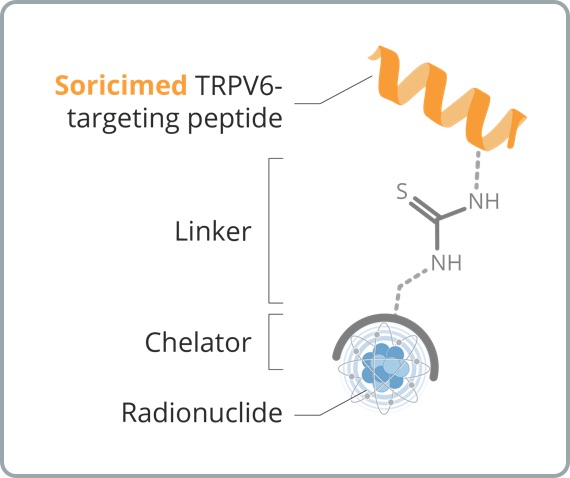![]()
Although a mainstay of cancer treatment, radiation therapy is associated with significant side effects. Radiation not only kills or slows the growth of cancer cells it will also damage nearby healthy cells. Because of the poor cancer cell targeting, the destruction of healthy cells can lead to fatigue, hair loss, nausea and vomiting, skin changes (burning), swelling, diarrhea, etc. For these reasons, targeted radiotherapy (or molecular radiotherapy) is an area of active research. Targeted molecular radiotherapy employs either monoclonal antibodies or peptides to deliver therapeutic radioisotopes to cancer cells. When peptides are used as the delivery vector, the approach is known as peptide-receptor radionuclide therapy (PRRT).
Our PRRT program builds on experience and knowhow gained in our PDC program. Like PDC’s, our PRRT’s utilize TRPV6 targeting peptide ligands as molecular delivery systems. Rather than delivering a cytotoxic payload, our PRRTs precisely deliver radioisotopes to tumors. The PRRT conjugate molecule is made up of 4 linked parts: a TRPV6-targeting peptide, a linker between the peptide and a metal chelator, and a radioisotope. The radioisotopes can include alpha and gamma emitters such as 212Pb, 68Ga, and 177Lu.

Address
18 Botsford St., Suite 201
Moncton, N.B. E1C 4W7
Canada
T: 506.856.0400
F: 506.856.0414
E: info@soricimed.com
© Copyright 2023 Soricimed Biopharma